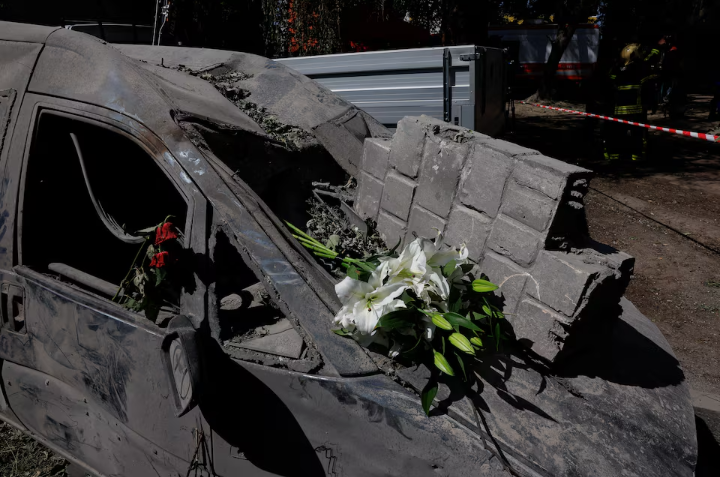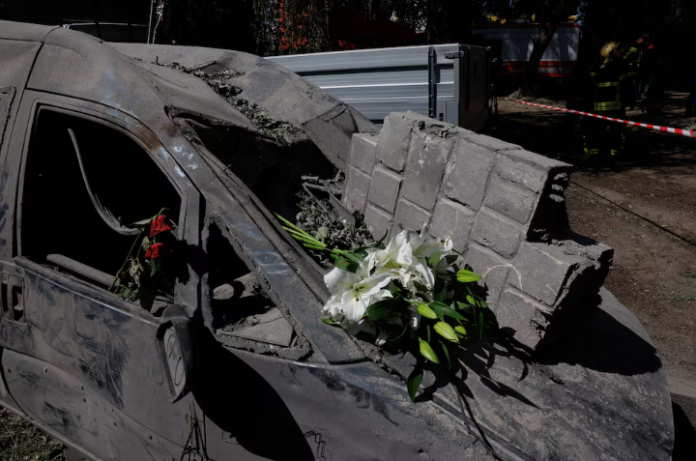Grief and heartbreak hung heavy over Kyiv on Wednesday, as the Ukrainian capital mourned 28 lives lost in what has become Russia’s deadliest assault on the city this year.
Flags were flown at half-mast and makeshift memorials—flowers, candles, and children’s toys—lined the streets near a bombed-out apartment complex. The deadly strike came late Tuesday night as Russia unleashed a massive barrage of 440 drones and 32 missiles across Ukraine, pounding multiple locations in Kyiv, including homes, schools, and infrastructure.
Ukrainian President Volodymyr Zelenskyy described the overnight attack as “one of the most brutal in recent memory.” He confirmed that a residential building had been partially flattened, leaving families trapped and many others injured.
Kyiv’s mayor, Vitali Klitschko, said rescue operations were ongoing Wednesday as emergency workers combed through rubble. A Reuters correspondent on the scene reported witnessing two bodies pulled from the debris. Meanwhile, a separate Russian strike on the southern port city of Odesa claimed two more lives.
Among the destruction in Kyiv, 27 locations were struck—many tied to daily civilian life. Educational institutions, key infrastructure, and residential areas bore the brunt of the Russian onslaught.
“That kind of nation has no right to exist and bring such suffering to people,” said 46-year-old Alla Martyniuk, who stood outside the rubble-strewn apartment site.
Russia’s Ministry of Defence claimed responsibility for the strikes, stating that they had targeted “military-industrial facilities” in Kyiv and Zaporizhzhia. However, Ukraine maintains the attacks have disproportionately hit civilian zones.
The onslaught comes amid growing frustration with stalled diplomatic efforts to end the war, which began with Russia’s full-scale invasion in February 2022. After attending the G7 Summit in Canada, President Zelenskyy returned home early, expressing deep concerns over diplomatic inaction. He lamented that he missed a critical opportunity to push U.S. President Donald Trump for more military aid, a move seen as increasingly urgent in light of escalating violence.

Washington, once Ukraine’s most reliable military backer, has yet to announce any new weapons packages under Trump’s administration. The delay adds to Ukraine’s vulnerability as Russia intensifies aerial assaults with increasing frequency.
For Kyiv’s residents, the psychological toll is mounting. Sofiia Holovatenko, 21, stood quietly at the attack site with flowers in hand.
“It shocks me, especially when it happens near your home. You just can’t ignore this,” she said.
As rescue crews dig through the ruins and families mourn their dead, Ukraine once again finds itself pleading for stronger international support to halt the relentless attacks that are slowly crippling its cities and spirit.



